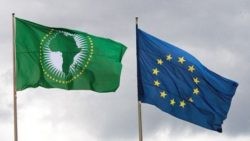
EU-Africa Relations on Migration: What future?
Over the past ten years, broadly under the auspices of the Joint Africa-EU Strategy (JAES), regional migration dialogues between the EU and the AU have intensified for the purposes of improving cooperation and making a well-managed migration a tool for development. However, the EU has pursued an agenda driven mainly by an interest in reducing irregular movements and transferring control over the governance of migration policies to European states.
Intra-regional migration dialogues and regional consultative migration processes led by groups of migration experts from international organizations (e.g. ILO, IOM, UNITAR) provide formal and informal spaces which European states have used to exercise their hegemony over migration issues. As a direct consequence of the opening up and broadening of new spaces for communication and inter-state cooperation, international organizations and NGOs funded by the EU have played an important role in assisting African governments to develop ‘good practices’ to fight irregular migration and enhance border security.
Whether this is done directly through bilateral agreements, or indirectly through the mediation and engagements of non-state actors and institutions at regional and trans-regional levels, European States are able to influence migration policies and practices of African States, set the agenda and dictate their priorities. This leads to the conclusion that it is not only the role played by African states that deserve more attention. The direct involvement of EU funded international organizations and initiatives in domestic and regional policy formulation, as well as the emergence of trans-regional forms of migration governance, require a thoughtful analysis.
Any major shifts in the relationships on migration between Europe and Africa are unlikely unless strong and effective institutions are built on the African continent and priorities are shaped by Africa’s aspirations. There is a need to rebalance the asymmetric donor-recipient relationship which traditionally characterized partnership programmes between Europe and Africa, not only in the field of migration, but also with regard to issues of economic development and governance. As the Kagame report on AU reform argues more broadly, to ensure that policy options are deeply grounded in African realities and focus on long-term solutions, African States need to clearly spell out their own priorities and agenda on migration, take full ownership of their initiatives and support an African migration policy framework based on a common African ancestry, values and the universalist concept of African citizenship.
Written by Sergio Carciotto, associate director of SIHMA for the Challenges Paper 2018
Categories:
Tags:

